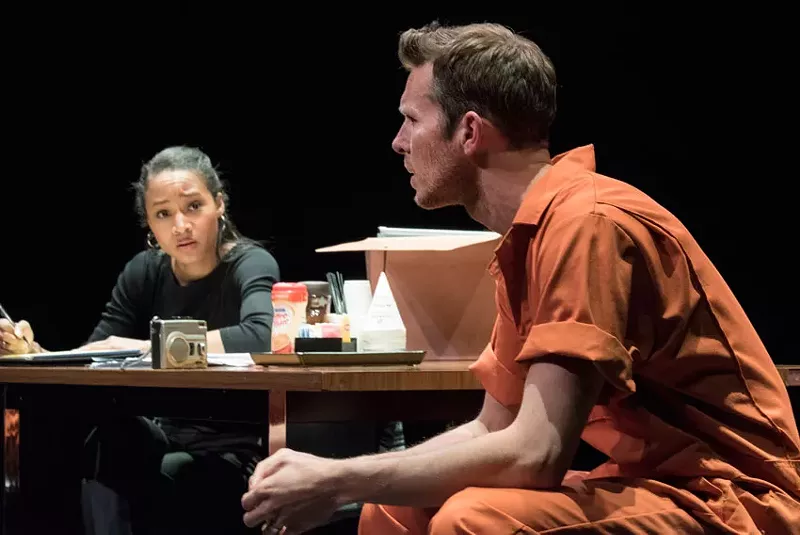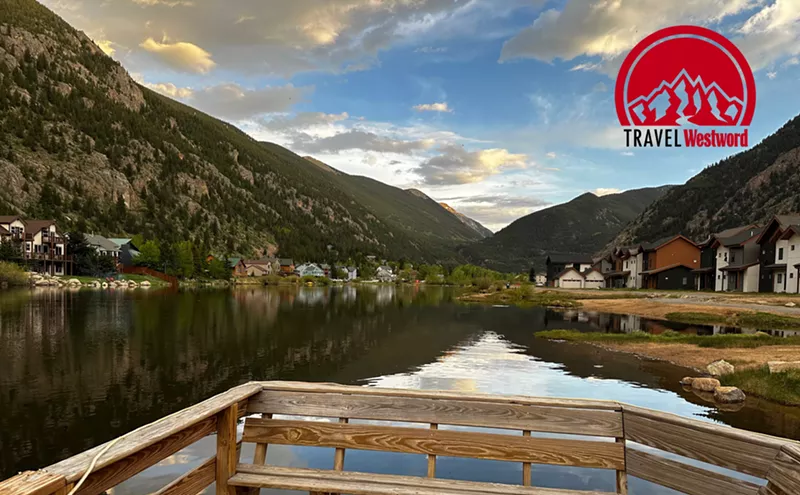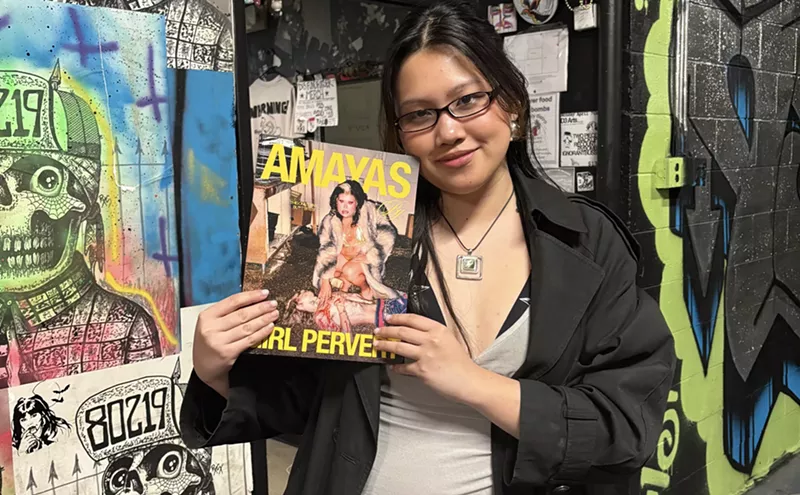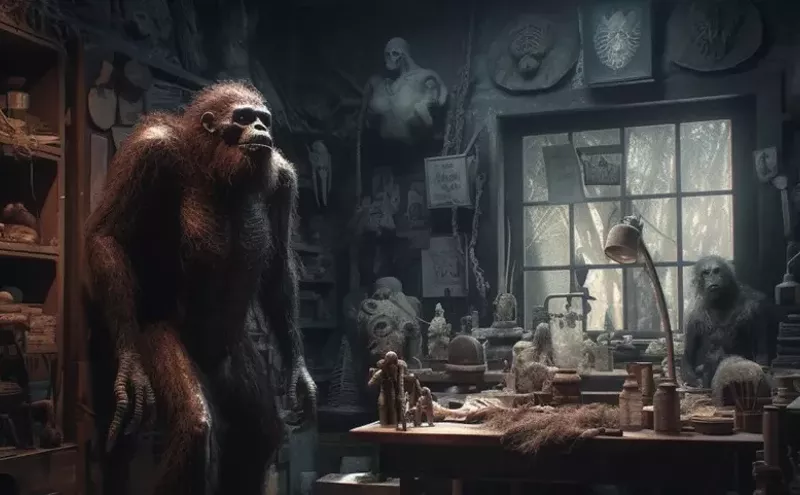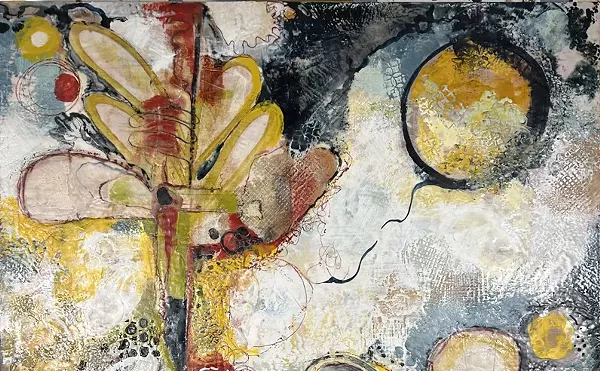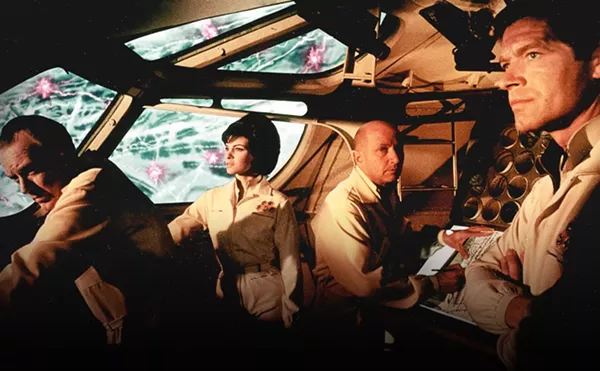There are countries where art is highly influential, so influential that novelists, painters, poets, playwrights and actors sometimes go to prison for their work. The United States is not generally such a country — though theater has always had its own particular urgency here, and anyone who thinks drama can’t move crowds has forgotten the 1960s, with the Bread and Puppet Theater’s persuasive, form-breaking pieces, and members of the Living Theatre leading their audiences out into the streets in spontaneous anti-war and anti-capitalist demonstrations.
Robert Schenkkan composed Building the Wall during the run-up to the election last fall, horrified by what he was hearing and seeing — “a fundamental assault on American values,” he calls it. A passionate, angry two-hander, the play is a warning, a wake-up call, an incendiary device tossed into the center of a drowsy room. Curious Theatre Company, which has long had a commitment to challenge and justice, rapidly picked up the work and cleared space within its already-constituted season. As a result, this production is part of a five-theater rolling world premiere; Building the Wall won’t open in New York until May.
The play is set in fall 2019. Gloria, a historian, is interviewing a prisoner, Rick, who before his own incarceration had been in charge of a private prison that housed immigrants. We know that Rick has done something terrible, but the scope of that something unfolds only in pieces, over the course of the evening. The cumulative narrative is mesmerizing, powerful, horrifying — particularly horrifying because what Rick describes is only an intensification of currents that have been running through our body politic for decades, and not just since the presidency of Donald J. Trump. Racism has long been a virus in the country’s blood, along with anti-immigrant fervor. The country accepted with little outcry George W. Bush’s “black site” prisons and hidden torture chambers — in fact, New York Times editors couldn’t bring themselves to use the word “torture” until around 2014, and even then in a rigidly circumscribed way. Prisons of all kinds, and private prisons in particular, have long been places of fear and pain; now they’re multiplying like mushrooms.
So there was Rick, young and relatively uneducated, presiding over hundreds of immigrants and given insufficient resources for the job. It isn’t hard to figure out how a situation like this can devolve into something resembling the horrors of Hitler’s concentration camps. But still, Rick’s words — delivered with a powerful mixture of rage, grief, passion and denial by John Jurcheck — create a gray chill that creeps up your spine and lodges in your brain. On that level, Building the Wall does exactly what Schenkkan intended: It wakes you up to lethal possibilities and warns that the time to take notice is now. The play’s comparison to Nazi Germany isn’t facile, melodramatic or ahistorical, but earned and deeply thought through.
The character of Gloria is problematic, however, and Brynn Tucker’s performance could also use a touch more gravitas. Why is Gloria interviewing Rick? He accuses her of wanting a book deal out of his story. She admits that a book might eventuate, but says what she’s really there for is truth. In a post-show talkback on opening night, Schenkkan mentioned Into That Darkness, journalist Gitta Sereny’s probing work on Franz Stangl, commandant of both Treblinka and Sobibor. Sereny spent a lifetime interviewing people who had committed heinous crimes and was both praised for her dedicated inquiry into the nature of evil and vilified for making the monsters she described more comprehensible, even in some ways sympathetic. Gloria may be operating on a similar impulse; as a woman who’s experienced racism herself, she may be driven by a need to deeply understand racism. But she doesn’t behave like any real historian or journalist I can imagine. She inserts her own opinion, challenges Rick in ways that could easily shut down the interview, and often doesn’t seem to be listening closely. And that’s crucial, because truth may provide our only means for getting through the murky times we inhabit — the kind of truth that Building the Wall insists we hear.
Building the Wall, presented by Curious Theatre Company (alternating with Constellations) through April 19, 1080 Acoma Street, 303-623-0524, curioustheatre.org.

Audio By Carbonatix
[
{
"name": "GPT - Billboard - Slot Inline - Content - Labeled - No Desktop",
"component": "23668565",
"insertPoint": "2",
"requiredCountToDisplay": "2"
},{
"name": "STN Player - Float - Mobile Only ",
"component": "23853568",
"insertPoint": "2",
"requiredCountToDisplay": "2"
},{
"name": "Editor Picks",
"component": "17242653",
"insertPoint": "4",
"requiredCountToDisplay": "1"
},{
"name": "Inline Links",
"component": "18838239",
"insertPoint": "8th",
"startingPoint": 8,
"requiredCountToDisplay": "7",
"maxInsertions": 25
},{
"name": "GPT - 2x Rectangles Desktop, Tower on Mobile - Labeled",
"component": "24956856",
"insertPoint": "8th",
"startingPoint": 8,
"requiredCountToDisplay": "7",
"maxInsertions": 25
},{
"name": "Inline Links",
"component": "18838239",
"insertPoint": "8th",
"startingPoint": 12,
"requiredCountToDisplay": "11",
"maxInsertions": 25
},{
"name": "GPT - Leaderboard to Tower - Slot Auto-select - Labeled",
"component": "17676724",
"insertPoint": "8th",
"startingPoint": 12,
"requiredCountToDisplay": "11",
"maxInsertions": 25
}
]

